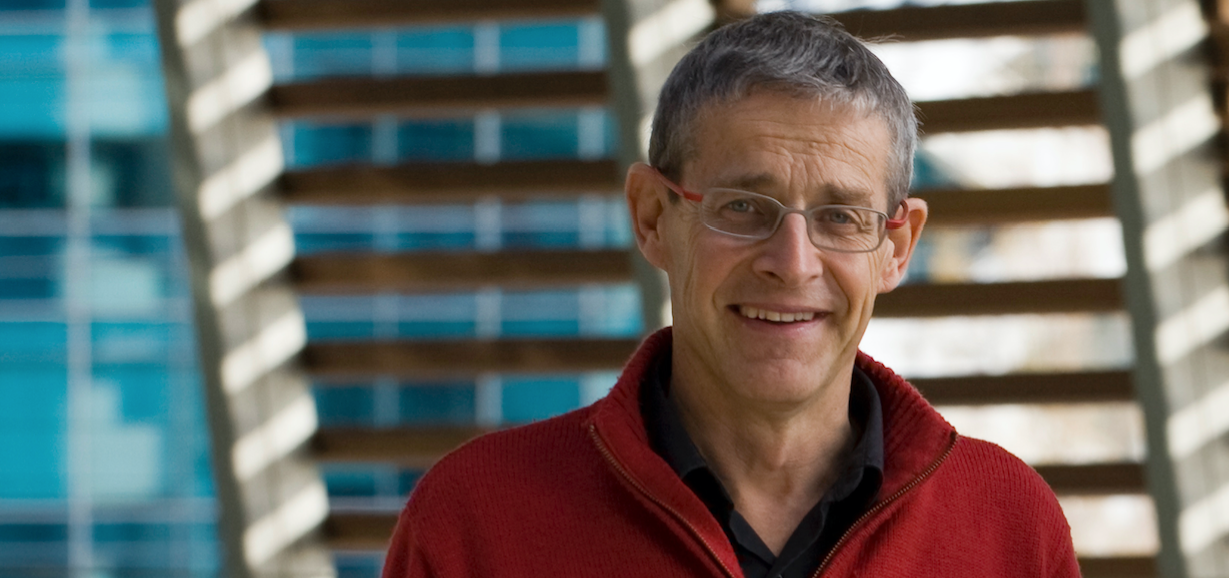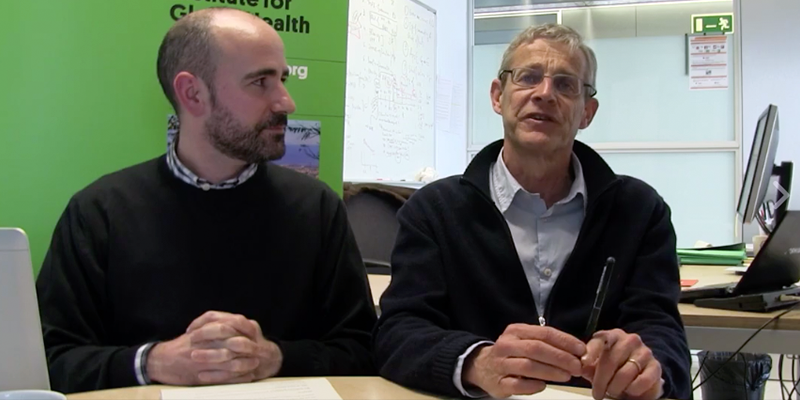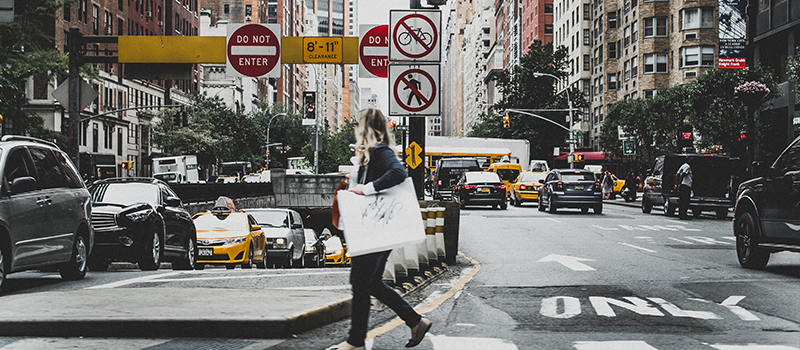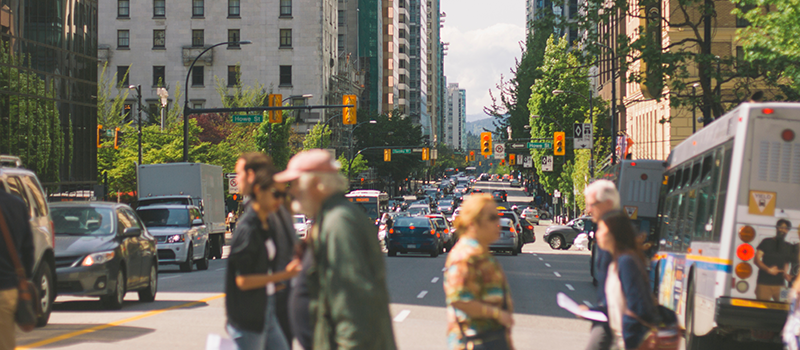Jordi Sunyer: “Pollution is Putting the Brains of New Generations of Children at a Clear Disadvantage”
Interview on Facebook Live with the head of ISGlobal’s Child Health programme
15.03.2017
Jordi Sunyer is the head of ISGlobal’s Child Health programme and Professor of Preventive Medicine and Public Health at Pompeu Fabra University (UPF). He has authored over 600 published scientific articles and his work has been cited some 20,000 times. Pau Rubio, coordinator of communications at ISGlobal Campus Mar, talked to Jordi Sunyer on Facebook Live. The interview is summarised below.
We found a direct correlation between daily variations in exposure to airborne pollutants and fluctuations in the children’s attention capacity
You were the lead author on a recent study that analysed the acute effects of air pollution on attention function in children. What were the main conclusions of that study?
The question we asked was whether children have a shorter attention span today, now that they are exposed to higher levels of pollution. It was the first time we had investigated this question in humans and we found a direct correlation between daily variations in exposure to airborne pollutants and fluctuations in the children’s attention capacity. This was in addition to the chronic effects of the exposure. The loss of attention function observed was equivalent to a retardation of around one and a half months in age. When pollution levels fall, this acute effect can disappear within a couple of days.
Does exposure to traffic-related air pollution hinder cognitive development in children?
We studied children from 300 different classrooms and exposure to pollution could be greater in some classrooms than others in the same school. The effect observed puts new generations at a clear disadvantage: after one year under the same conditions for all other variables that influence cognitive development, the child with greater exposure to air pollution will show less development of cognitive abilities, and specifically of attention function.

There are things that we can do immediately. We can prohibit parents from dropping their children off and picking them up just outside the school
In view of these findings, how worried should we as parents be about our children?
Pollution is only one of the determinants that affects brain development, which is also influenced by our genes, the attention we pay to our children, stimulation of all kinds, and so on. However, the development of the brain is negatively affected by the ultrafine particles that pollute the air we breathe. We know that these particles cause neuroinflammation in the brain, which in turn delays natural development.
So I think we should be concerned. It would be ridiculous to ignore this folly. If it is possible to organise the city and its transportation system some other way, we should be doing it. In this case, it would mean eliminating traffic from areas close to schools. The authorities in Denmark and California, for example, have prohibited the construction of new schools in areas with high traffic levels. There are also things that we can do immediately. We can prohibit parents from dropping their children off and picking them up just outside the school. The drop-off zone should be at least 100 meters from the school. We can reroute traffic that passes directly in front of a school to ensure a separation of at least 50 meters.
However, we know that these measures are not going to be popular with a lot of people. We saw the negative reaction in Barcelona in the case of the “superblocks” initiative, which has come in for a lot of criticism.
Another example, though, is that of the prohibition of smoking in hotels, restaurants and the workplace. When the measure was first introduced, there was a feeling that it would be the end of the hospitality business. Today, if there was a referendum on the topic, 95% of people would not want to go back to smoke-filled restaurants and bars. The same thing will happen in case of pollution.
The impairment is permanent when exposure occurs at the very beginning of the child’s life
Are the effects of pollution on children reversible? (Question from Rosa María Curto)
The evidence from studies that followed children from infancy to adolescence shows that the impairment is permanent when exposure occurs at the very beginning of the child’s life. In our recent study, we did not follow the participants from childhood through to adolescence, so we do not know whether the effects will be reversible. My impression is that the effects of exposures in school-age children are not very profound and that most of the function can be recovered once the child is no longer exposed to pollutants. However, from what we have seen in animal studies, I suspect that if the exposures occur during fundamental stages of brain growth, such as during pregnancy (especially the third trimester) or in the first two years of the child’s life, that the effects are irreversible and the deficit is never made up.

Clearly what is needed is a response on the part of the community and the authorities
What can we do to reduce children’s’ exposure to pollution?
Clearly what is needed is a response on the part of the community and the authorities. But there are also some things that we as individuals can do, such as wearing masks and installing indoor air purifiers. In Peking, for example, schools have been equipped with air purifiers, although that is not a very sustainable solution. We can buy an air purifier for our homes and we can campaign for air cleaning systems to be installed in schools.
We also know that a varied diet rich in antioxidants—fruit, vegetables, nuts, blue fish—reduces the negative effects of pollutants. There is also a scientific paper in Mexico that talks about the benefits of giving children pure chocolate, which has been shown to counteract these deleterious effects.
We know that air pollution is associated with a higher risk of stroke, impaired neural development, mental illness, degenerative diseases, COPD, lung cancer, pneumonia, myocardial infarction, arrhythmia, hypertension, and diabetes, to cite just some effects? So what is this stuff we are breathing?
Yes, it is pretty clear that the air in our cities is toxic. For example, 600,000 vehicles come into Barcelona every day from the surrounding area and over 300,000 motorbikes circulate in the city. While each one of these vehicles produces only a modest amount of pollution, the total emissions of all those millions of vehicles makes the air very toxic. The situation is exacerbated by the presence of ultrafine particles produced by fossil fuels, which we inhale when we are very close to the source. There are other sources besides traffic—industry for example—but their impact is lower because they tend to be located further from the areas where people live. The port of Barcelona represents only 5%-6% of the air that the city breathes. The problem in Barcelona is that 70% of the population lives or walks on streets where more than 10,000 vehicles circulate, which places them very close to the source of the pollution, where exposure is most intense. Since 80% of the ultrafine particles we inhale come from traffic, this proximity is the most serious problem. If we could just keep a bit further away from vehicular traffic—between 50 and 200 meters—we would radically reduce our exposure to airborne pollution.

The air quality on a street with dense traffic is similar to what you would find in a room where eight cigarettes have been smoked
Since I live in the city centre, is it worthwhile for me to give up smoking, or would it make no difference? (Question from Laia Bertran)
Of course it is worth it. The two effects are additive or multiplicative. The air quality on a street with dense traffic is similar to what you would find in a room where eight cigarettes have been smoked. Air pollution has become one of the most serious health problems in the world and it is now the fourth leading cause of death—accounting for 10% of mortality worldwide. However smoking, which accounts for 11% of all deaths, is still the third leading cause. If you smoke and you are exposed to pollution, your risk of having health problems is doubled.
Spain has the third highest prevalence of dementia in the world. Is there a relationship with pollution?
In a study in Mexico, Alzheimer-type lesions were found on autopsy in the brains of children who lived in highly polluted areas. Animal studies have shown that brain lesions found in rats are very similar to those found in patients with Alzheimer’s disease. The authors of a recent study published in the Lancet also concluded that people who live in highly polluted areas had a 10% higher risk of developing Alzheimer’s disease. This relationship has now been demonstrated by the results of more than ten studies.
We cannot tolerate living with such polluted air
Air pollution is the fourth leading risk factor for death in the world and is the cause of death in one out of every ten people. Do you think we are aware of how serious the problem is?
I think awareness of the problem is growing. For example, in a recent survey in Barcelona, pollution was cited as a cause of concern by 70% of the respondents. This indicates a growing awareness that we cannot tolerate living with such polluted air. We are aware that continuing to do so is unacceptable. And we do have alternatives; there are better ways to manage urban planning and mobility.
Barcelona and Madrid are the most polluted cities in Spain. Recently, 33 measures* aimed at combating pollution were presented in Barcelona. What do you think of them?
One very important step is designating the whole of the Barcelona Metropolitan Area as a zone where the air quality is protected. This is impressive because it means that we are finally admitting that there is a problem and recognising that it has to be addressed. The difficult thing is to act because actions are painful. We will have to replace more than half of the cars on the road, reduce the use of private vehicles, promote the use of renewable energies, and so on. The overall objective of the plan is to tackle the structural basis of pollution rather than dealing with the periodic episodes of intense pollution. My only reservation is that I wish it could be done more quickly.
One of the new measures is a ban on diesel cars over 10 years old and petrol cars over 20 years old in the Metropolitan Area of Barcelona, starting in 2020.** What do you think of that ban?
I am totally in favour of it. The downside is that it will have greater impact on the people with the lowest incomes. A good initiative is the one proposed by the Metropolitan Area of giving 3 years of free public transport to anyone who scraps an old car. The idea is to attempt to partially offset the inequity. In the end, what we get is much more than what we lose.

Private cars cannot be the vehicle of choice for transportation in cities because we are too numerous
To what extent is the car our enemy?
I don’t think the car is our enemy. It was, after all, the engine of economic growth in the twentieth century. The car has had very positive effects, but also negative ones. What we now know is that private cars cannot be the vehicle of choice for transportation in cities because we are too numerous. The car belongs on the road but not on streets. The car will have its place, particularly new cars powered by renewable energy or fuels and shared cars, but in the 21st century cars will cease to be the main mode of transport in cities.
Could you cite any examples of other cities in the world that have taken steps to reduce pollution?
More than 220 cities in Europe have implemented very active plans to reduce pollution. There are paradigmatic examples, such as the congestion tax levied in Stockholm on all cars entering the city. That led to a 20% reduction in pollution levels, which has now been sustained for 7 years. Tokyo halved its air pollution levels in 10 years just by modernising the stock of vehicles on its roads. Swiss cities provide the ideal model, the example of the future: two thirds of all the inhabitants do not own a car. People use car sharing services.
My first piece of advice would be to try to choose routes with the least traffic and to avoid streets where the traffic is dense
I use a bicycle to get around in the city. Can you give me any advice on how to avoid air pollution? (Question asked by Anna Rosés)
My first piece of advice would be to try to choose routes with the least traffic and to avoid streets where the traffic is dense. Masks can be useful, but only the professional ones, which are the only type that actually protect us from inhaling ultrafine particles. Masks have to be used correctly. No air should penetrate except via the filter and the mask should not be taken off at any time during the exposure.
And the final question is a more personal one. Have you taken any measures in your own personal life to avoid pollutants.
Yes. I get around in the city on foot and I try to avoid the most polluted areas. It takes me an hour to get to work and another hour to get home, but the same journey would take me 20 minutes in a car. I prefer to travel by train and then walk for half an hour. I don’t want to contribute to pollution and I don’t see commuting by train and walking as a waste of time because I use the time to do other things. I read on the train. I get exercise walking. The journey relaxes my mind and I think I gain a lot by doing it.
*On 31 January 2017, the Barcelona Metropolitan Area Authority announced a raft of 33 measures aimed at reducing air pollution. On 6 March 2017, after this interview had taken place, the Generalitat de Catalunya (the Catalan Government), the Barcelona Metropolitan Area Authority, the Barcelona Provincial Authority and the local authorities in charge of all 40 municipalities reached an agreement on air quality improvement for the greater metropolitan area.
**The agreement reached on 6 March 2017 at the meeting on air quality in the Barcelona conurbation extended commitment to the plan to 40 municipalities and brought forward the date of its application to 2019.



